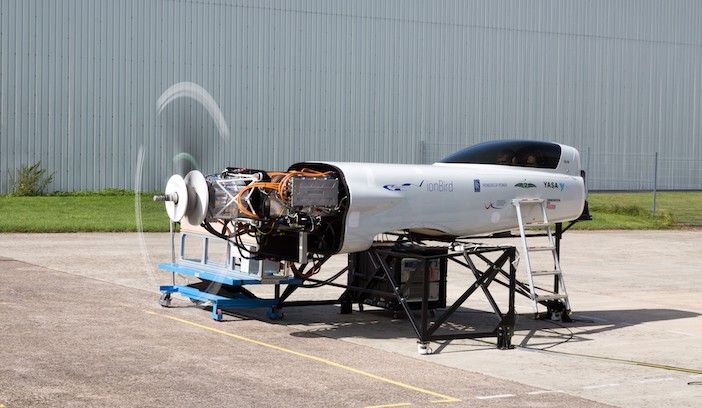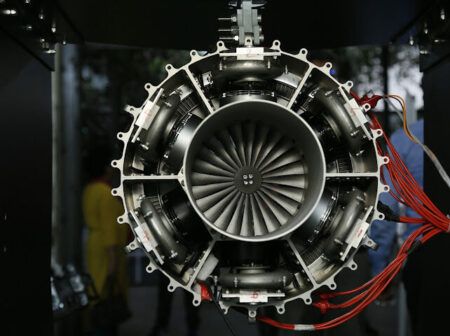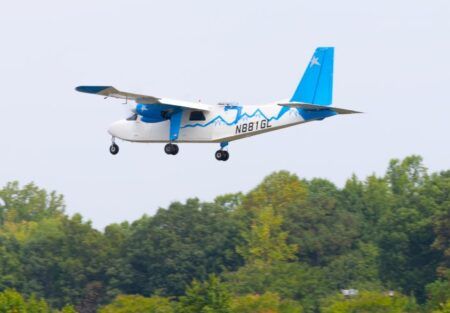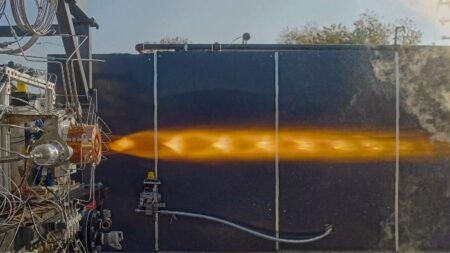Rolls-Royce has completed ground testing the systems in the Spirit of Innovation technology demonstrator aircraft, which it will use in an attempt to break the world record for the fastest all-electric airplane next year.
The £6.37 million (US$8.3 million) ACCEL (accelerating the electrification of flight) program’s Spirit of Innovation aircraft uses electric motors and controllers from YASA and aviation startup Electroflight. Rolls-Royce plans to set the world record for the fastest electric aircraft in the world by achieving a target speed of more than 300mph (480km/h) early next year. The aircraft was originally revealed in January this year.
According to the Guinness Book of World Records, the fastest the world’s fastest aircraft powered by an electric motor is the Extra 330LE, which during a flight on March 23, 2017 in Germany reached a top-speed of 213.04 mph (342.86 km/h).
As part of the program, Rolls-Royce engineers first developed the ionBird test airframe, a full-scale replica of the plane’s core, for ground testing the propulsion technology. This included a 500hp electric powertrain and a battery with enough energy to supply 250 homes, said the company.
During nine months of ground testing the propeller was run up to full speed, around 2,400 rpm, using what Rolls-Royce claims is the most power-dense battery pack ever assembled for aircraft propulsion. Over 6,000 cells are packaged in the battery.
Many gigabytes of data every hour were generated during testing, which the team have analyzed to improve performance wherever possible. In addition, engineers and test pilots optimized the system and developed operating procedures for electric flight.
Engineers will next integrate the systems into the ‘Spirit of Innovation’ aircraft ahead of flight tests and the world-record attempt. The first flight is planned to take place in the next three months.
Rob Watson, director of Rolls-Royce Electrical said, “We are committed to playing a leading role in reaching net zero carbon by 2050. The completion of ground-testing for the ACCEL project is a great achievement for the team and is another important step towards a world record attempt. This project is also helping to develop Rolls-Royce’s capabilities and ensure that we remain a leader in delivering the electrification of flight, an important part of our sustainability strategy.”
UK-based luxury watch maker Bremont will be the official timing partner for the all-electric speed record attempt and has also helped develop the design of the aircraft’s cockpit which will feature a stopwatch, while the company has machined canopy release parts at its Henley-on-Thames manufacturing facility.
Half of the project’s funding is being provided by the UK Government via the Aerospace Technology Institute (ATI). Mark Scully, head of technology for advanced systems and propulsion at the ATI said, “The significance of reaching this milestone should not be underestimated. The ACCEL team is pioneering the integration of high-performance batteries, motors and drives to deliver an electric propulsion system in an ambitious flight test programme.
“These technologies and the systems integration needed to utilise them hold great potential for future sustainable aviation, which is why the ATI is proud to support the project.”
The ACCEL project is a series of firsts for Rolls-Royce as we journey towards net zero carbon by 2050. It is the first Rolls-Royce project to use offsetting to make the whole programme carbon neutral.





